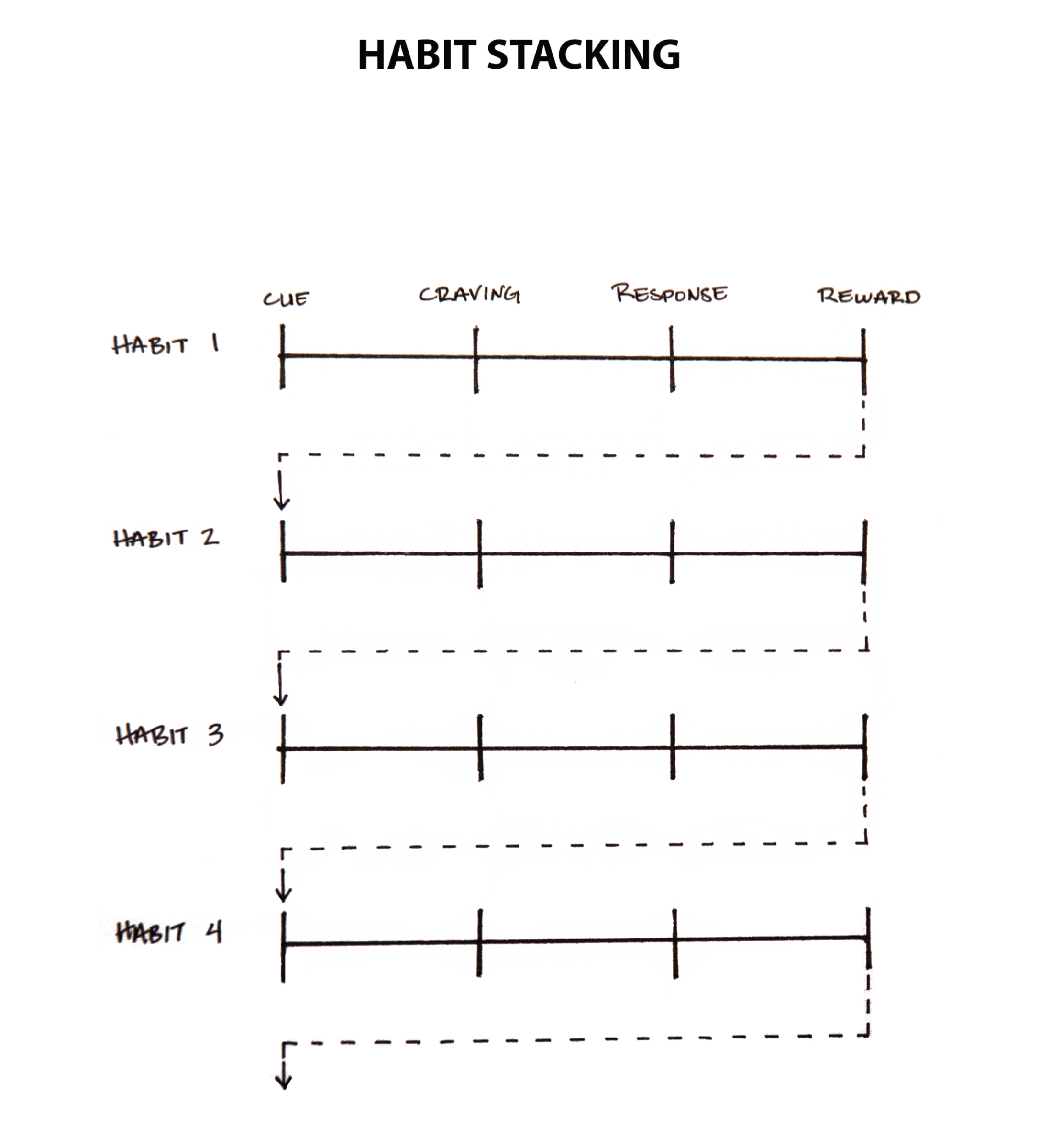Does your to-do list feel endless? Are you constantly busy, yet feel like you're not making real progress on what truly matters? If this sounds familiar, you're not alone. In our hyper-connected world of endless notifications and demands, millions of people struggle with the same overwhelming feeling.
The answer isn't doing more. It's practicing the power of less.
This transformative philosophy was popularized by Leo Babauta, author and creator of the acclaimed blog Zen Habits, in his groundbreaking book "The Power of Less". This approach isn't about偷懒 or avoiding work. It's about consciously choosing to focus your time and energy on the few things that are truly essential.
In this guide, you'll discover the core principles of the power of less philosophy, understand why it's more relevant than ever in 2025, and learn a practical framework to apply it to your own life immediately. You'll also see how modern tools can help you embrace this mindset without the overwhelm.
Ready to achieve more by doing less of what doesn't matter? Let's dive in.
The Philosophy of Less: Who is Leo Babauta?
The power of less isn't just another productivity hack. It's a fundamental shift in how we approach work and life. At its core, this philosophy is about achieving more by doing less of what doesn't matter.
This means consciously choosing to focus your time and energy on the few things that are truly essential, while eliminating everything else. It's not about laziness or avoiding responsibility. It's about maximizing impact through strategic focus.
Meet the Creator: Leo Babauta
Zen Habits creator Leo Babauta, is a prolific writer and minimalist lifestyle guru.
Leo Babauta is the founder of Zen Habits, a blog read by over 15 million people monthly. His journey to creating the power of less philosophy began with his own personal transformation.
Babauta's story is deeply human and relatable. He quit吸烟, 摆脱了债务, and simplified his life through deliberate choices. This transformation wasn't about perfection—it was about progress through conscious limitation.
His approach resonates because it's based on real experience, not theory. Babauta discovered that by doing less but focusing on what mattered most, he could achieve far better results in every area of his life.
The power of less emerged from this practical wisdom. It's a philosophy grounded in the reality that our attention and energy are finite resources that must be invested wisely.
Source: Zen Habits Philosophy
The 6 Core Principles to Master the Power of Less
The power of less is built on six simple but profound principles. Each principle offers actionable insights you can implement immediately to transform how you work and live.
Principle 1: Set Limitations
Setting limitations means consciously creating constraints to prevent over-commitment and decision fatigue. It's about choosing quality over quantity in everything you do.
A powerful technique is limiting yourself to 3 Most Important Tasks (MITs) per day. This forces you to prioritize what will actually move the needle toward your goals.
When you limit your daily tasks to just three essential items, you eliminate the scattered energy that comes from trying to do everything. Instead, you channel your focus into activities that create real impact.
Principle 2: Choose the Essential
This is the art of identifying the vital few from the trivial many. The key is using the 80/20 Rule: identify the 20% of your activities that yield 80% of your desired results, then focus relentlessly on them.
Warren Buffett's "25-5 Rule" demonstrates this perfectly. List your top 25 goals, circle the top 5, and then actively avoid the other 20. This prevents you from spreading yourself too thin across activities that don't truly matter.
The power of less shines when you realize that most of what fills your day contributes very little to your actual success and happiness.
Here is an example of habit stacking from Atomic Habits:
Principle 3: Simplify
Actively remove unnecessary steps, features, and commitments from your work and life. The goal is creating streamlined, focused processes that eliminate friction and confusion.
Champion single-tasking over multitasking. Multitasking is a myth that splits focus and reduces quality. When you do one thing at a time, you do it better and faster.
Neuroscience supports this approach. Research shows that single-tasking improves cognitive performance and memory retention compared to divided attention.
Source: Stanford Focus Study
Principle 4: Focus
Once you've simplified and chosen the essential, you must dedicate blocks of uninterrupted time to your priorities. This is where deep work happens and real progress is made.
Time-blocking, popularized by Cal Newport in "Deep Work," is a practical method for ensuring focus on your MITs. Schedule specific time blocks for your most important work and protect them fiercely.
Focus isn't just about concentration—it's about creating the conditions where your best work can emerge naturally.
Principle 5: Create Habits
The principles of the power of less only work if they become automatic. Turn these behaviors into habits so you don't rely on willpower, which is a limited resource.
Try the 30-day micro-habit challenge. Commit to identifying your 3 MITs every morning for 30 days until it becomes second nature.
Habit stacking, from James Clear's "Atomic Habits," is another powerful technique. Link your new "less is more" behaviors to existing habits to make them stick faster.
Principle 6: Start Small
Overcoming inertia is often the hardest part of any change. The key is making the first step ridiculously easy to complete.
Use the "2-Minute Rule." If a task takes less than two minutes, do it immediately. For larger goals, break them down until the first action takes only two minutes.
Instead of "read the book," start with "read one page." This approach, inspired by David Allen's "Getting Things Done," removes the mental resistance that prevents you from starting.
Why the Power of Less is Your Secret Weapon Against Modern Burnout
In 2025, the power of less isn't just helpful—it's essential for survival in our overwhelming digital landscape.
The Reality of Digital Overload
Decision fatigue is at an all-time high. Every day, we face countless choices about what to read, watch, buy, and do. This constant decision-making exhausts our mental resources before we even begin our important work.
Research shows that 72% of knowledge workers report feeling overwhelmed by digital tools and constant decision-making. The endless stream of notifications, emails, and apps creates a state of continuous partial attention that prevents deep thinking and meaningful progress.
Source: Microsoft 2024 Work Trend Index
The Proven Productivity Boost
Embracing the power of less isn't just a defensive move against burnout—it's an offensive strategy for peak performance.
Teams that focus on a few key priorities, like implementing the MIT system, can boost their productivity by as much as 42%. This proves that doing less, but doing it better, delivers tangible results that matter.
Source: Asana Anatomy of Work 2025
The power of less works because it aligns with how our brains actually function. We perform best when we can direct our full attention to one important thing at a time, rather than juggling multiple competing priorities.
Your Practical Toolkit for Applying The Power of Less (Featuring 3MinTop)
Knowing the principles is one thing; living them is another. Here's how you can start applying the power of less today, using smart tools to accelerate your progress without adding complexity.
Step 1: Identify Your Essentials with Precision
The first step is absorbing the core ideas of essentialism. This means reading foundational books like "The Power of Less" or "Essentialism" to understand the deeper principles behind this philosophy.
But who has time to read entire books when you're already overwhelmed? This is where practicing the power of less begins with your learning approach.
Instead of letting books pile up unread, use a tool like 3MinTop. You can upload an ebook and get the core insights and chapter summaries in just 3 minutes. It's the ultimate way to learn the essential concepts without the fluff.
3MinTop's AI Smart Summary feature embodies the philosophy perfectly. It turns complex knowledge into simple, actionable insights, allowing you to master essential concepts in the time it takes to grab a coffee.
Step 2: Build Your 'Less is More' System
Create a practical framework that supports your new power of less mindset:
Morning Ritual: Start each day by identifying your 1-3 MITs. Write them down and commit to completing them before moving to less important tasks.
Digital Declutter: Unsubscribe from noisy emails and turn off non-essential notifications. Every ping is a demand on your attention that pulls you away from what matters.
Habit Tracking: Use a simple calendar to track your new "less is more" habits. Visual progress reinforces positive behavior change.
Building habits requires consistency, and the power of less advocates starting small. Instead of aiming for an hour of reading daily, build a sustainable habit with just 3 minutes of focused learning.
3MinTop's scientific progress tracking helps you see your growth, motivating you to stick with your new habits. The app makes it easy to build a powerful reading habit without overwhelming your schedule.
Step 3: Simplify Your Understanding with Smart Tools
A key part of simplification is understanding complex topics quickly and clearly. When you're learning a new concept, it can feel overwhelming without the right structure.
3MinTop simplifies this process by generating a structured mind map of any book's content. This allows you to see the entire knowledge framework at a glance, turning a complicated book into a clear, simple structure.
This is the 'Simplify' principle applied directly to your learning. Instead of getting lost in details, you can grasp the big picture and understand how all the pieces fit together.
The power of less in learning means focusing on understanding core concepts deeply, rather than trying to memorize every detail. 3MinTop's approach aligns perfectly with this philosophy.
A Balanced View: Nuances of 'Less'
The power of less is powerful, but it's important to understand its nuances to avoid common pitfalls and apply it effectively.
Avoiding "Minimalism Guilt"
One common trap is feeling guilty for not being "minimalist enough." This misses the point entirely.
The solution isn't rigid deprivation, but flexible essentialism. What constitutes "less" for you depends on your unique context, goals, and circumstances. The power of less is about strategic choices, not arbitrary restrictions.
Source: Raptitude Analysis
The Evolution of Less
Even Leo Babauta's thinking has evolved over time. His more recent work emphasizes "contextual reduction," meaning less isn't about self-denial but about making strategic investments of your time and energy.
The power of less isn't about doing the minimum possible—it's about doing the right things with maximum impact. This subtle but important distinction prevents the philosophy from becoming another source of stress.
Conclusion: Start Your Power of Less Journey Today
The power of less is a liberating and powerful strategy for thriving in our noisy, overwhelming world. It's about focusing on impact, not activity, and choosing quality over quantity in everything you do.
The rewards are significant: less stress, more focus, higher productivity, and more time for what you truly love. In a world that constantly demands more, choosing less becomes a radical act of self-care and effectiveness.
Remember, this isn't about perfection—it's about progress. Start with one principle, build one habit, or simplify one area of your life. Small changes compound into extraordinary results over time.
Stop trying to do everything. Start achieving what matters.
Ready to apply the power of less to your personal growth? Start by mastering essential knowledge in a fraction of the time. Upload your first book to 3MinTop for free and get its core ideas in just 3 minutes. Experience how a little bit of focused learning every day can lead to extraordinary growth.
Transform your learning, simplify your growth, and embrace the power of less starting today.


